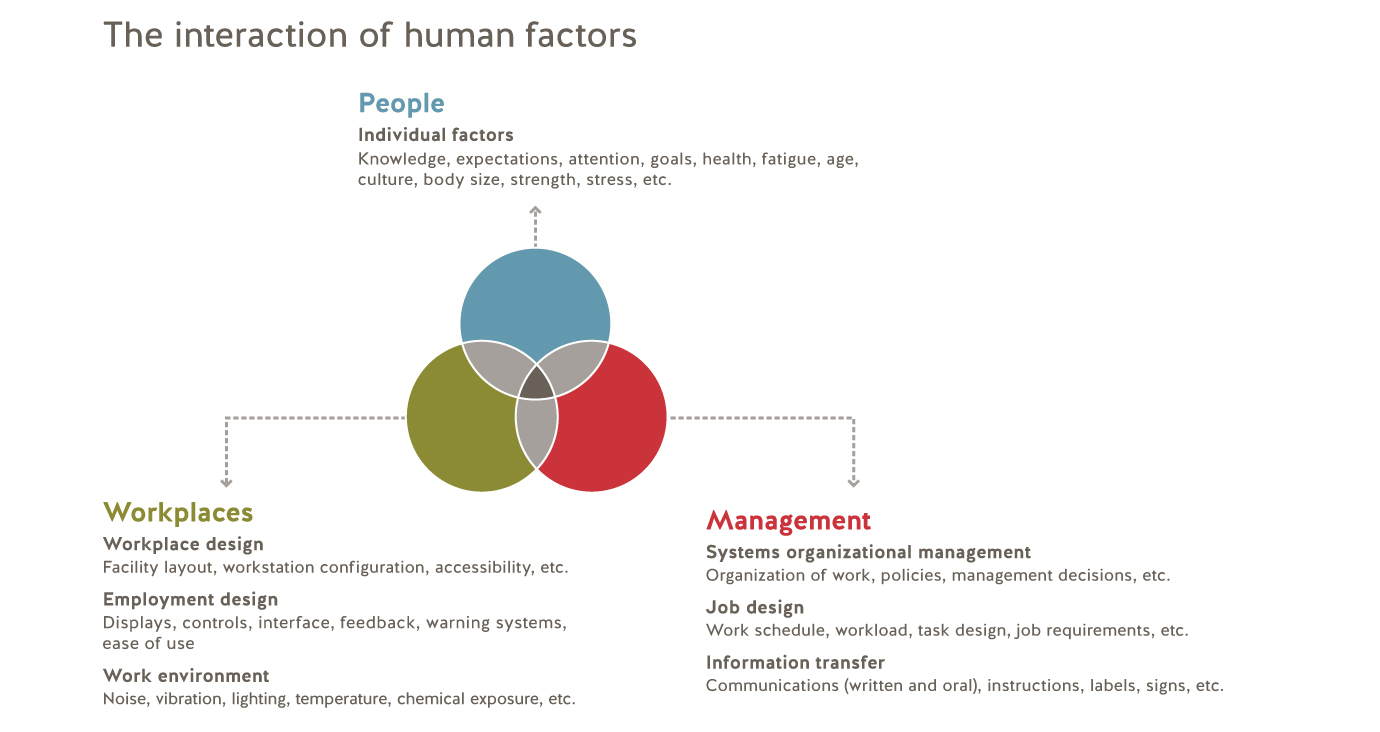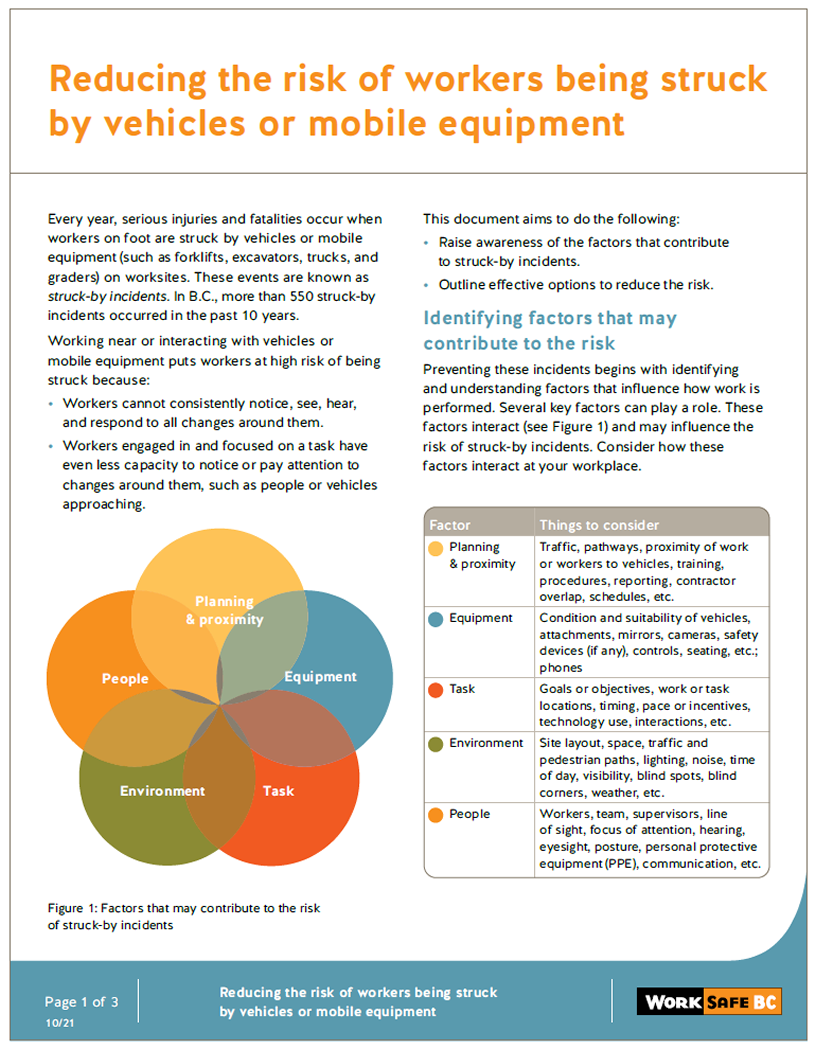Human factors
Human factors is a scientific study that evaluates and understands human interactions in relation to other elements of a workplace system. It applies theory, principles, data and methods of design to optimize safety, human well-being, and overall system performance.

Human factor practitioners contribute to the design and evaluation of tasks, jobs, products, environments, and systems to make them compatible with the needs, abilities, and limitations of all people.
At WorkSafeBC, the human factor approach is used to understand why workplace incidents occur. Human factor specialists examine the potential mismatches between workers and the elements of their workplace systems. They also evaluate how workplace factors influenced the decisions and actions of workers. Often, when a workplace incident happens, human error is seen as a cause, but there are usually many factors that contribute to workplace incidents.
Workers make decisions and take actions that make sense to them at the time given their goals, knowledge, and focus of attention. Each and every day, workers adapt to changes in the workplace and make adjustments. When incidents happen, the key to better understanding involves finding out how and why the worker's actions were influenced by workplace elements. By looking at the interactions between people, workplaces, and management systems, and by understanding the gaps and deficiencies, steps can be taken to prevent similar incidents from happening.
WorkSafeBC's human factors team carries out investigations of workplace incidents, conducts research, delivers education and training sessions, and contributes to health and safety resources.


